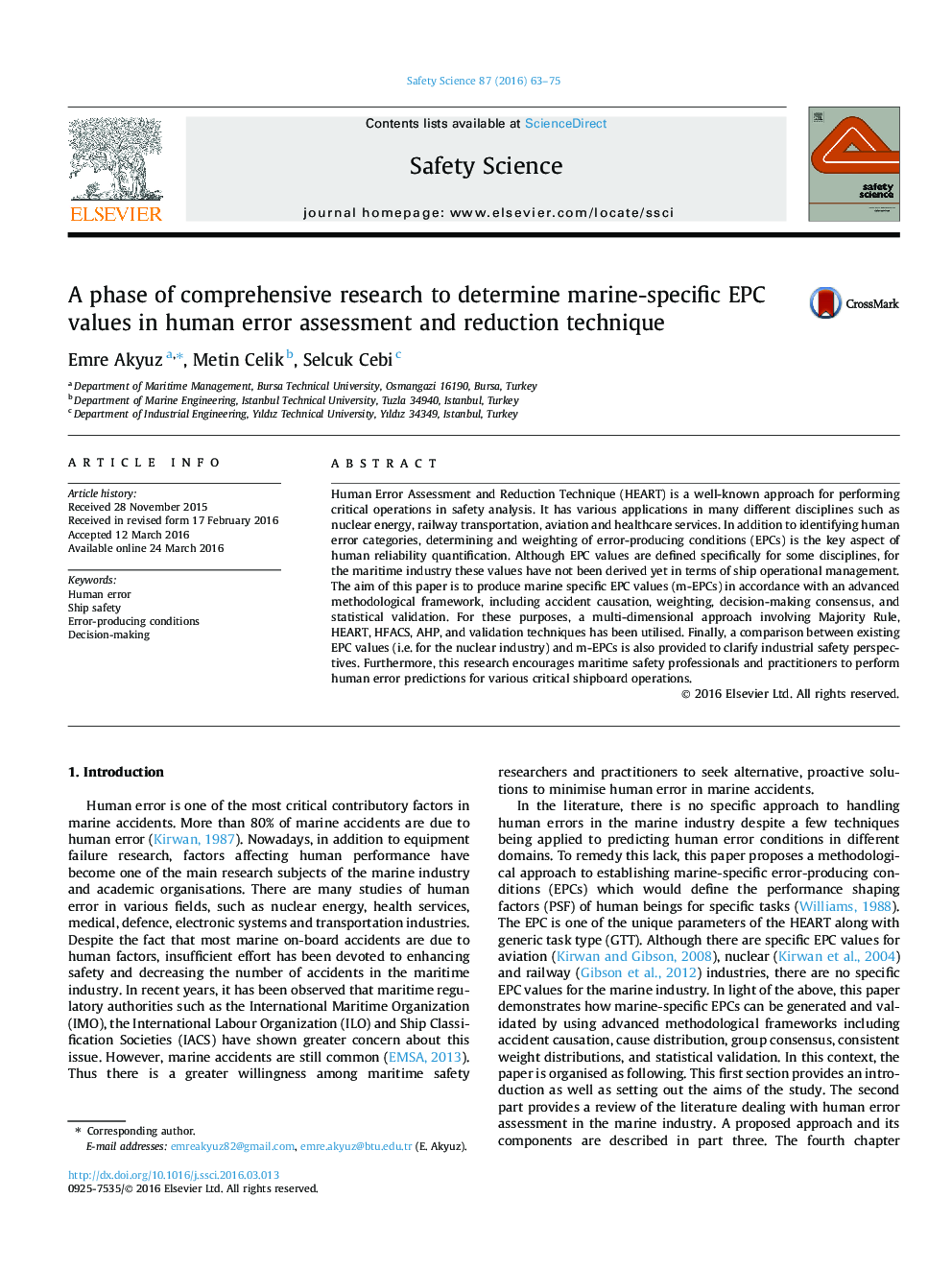| Article ID | Journal | Published Year | Pages | File Type |
|---|---|---|---|---|
| 588942 | Safety Science | 2016 | 13 Pages |
•To generate marine-specific EPC values for maritime transportation.•To quantify and validate the EPC parameter.•To create multi-dimensional approach.•To enhance maritime safety and reliability.
Human Error Assessment and Reduction Technique (HEART) is a well-known approach for performing critical operations in safety analysis. It has various applications in many different disciplines such as nuclear energy, railway transportation, aviation and healthcare services. In addition to identifying human error categories, determining and weighting of error-producing conditions (EPCs) is the key aspect of human reliability quantification. Although EPC values are defined specifically for some disciplines, for the maritime industry these values have not been derived yet in terms of ship operational management. The aim of this paper is to produce marine specific EPC values (m-EPCs) in accordance with an advanced methodological framework, including accident causation, weighting, decision-making consensus, and statistical validation. For these purposes, a multi-dimensional approach involving Majority Rule, HEART, HFACS, AHP, and validation techniques has been utilised. Finally, a comparison between existing EPC values (i.e. for the nuclear industry) and m-EPCs is also provided to clarify industrial safety perspectives. Furthermore, this research encourages maritime safety professionals and practitioners to perform human error predictions for various critical shipboard operations.
